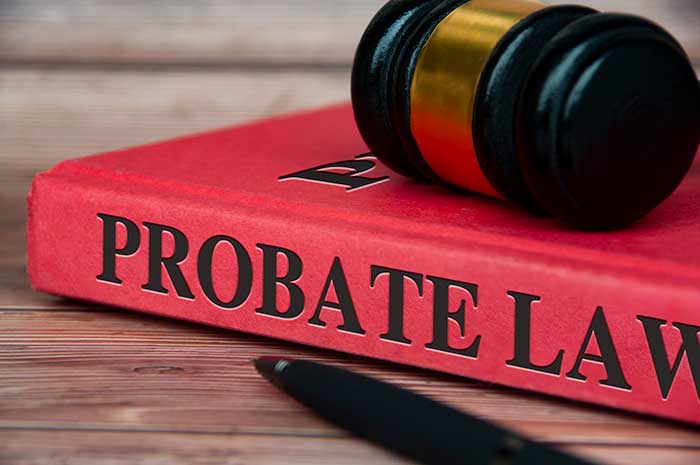Probate Law By Mauro Law Firm
Probate is the legal process through which the estate of a deceased person is administered and distributed under court supervision. Whether with or without a will, probate ensures that debts are settled and assets are distributed according to the deceased’s wishes or state law. It involves validating the will, appointing an executor or administrator, identifying heirs, and overseeing the transfer of property. Our firm specializes in guiding clients through the complexities of probate, offering expert assistance to ensure a smooth and efficient resolution of estate matters.

Probate – With a Will
Probate with a will streamlines the process of distributing assets according to your wishes after your passing. By clearly outlining who receives what, a will simplifies the legal proceedings involved in settling your estate. Our firm provides comprehensive guidance throughout each step of probate, ensuring that all aspects of the will are meticulously followed. Executors play a pivotal role in managing estate affairs, from overseeing asset distributions to settling outstanding debts. We specialize in navigating potential challenges that may arise, such as disputes over inheritances, employing our legal expertise to resolve issues efficiently and fairly.
Probate – Without a Will
Probate without a will, known as intestacy, triggers specific legal processes to determine how assets are distributed upon someone’s passing. Intestate succession laws dictate the hierarchy of inheritors, outlining who receives what portions of the estate. Our comprehensive guide navigates the intricate legal steps required in probating an estate without a will, ensuring compliance with state laws throughout the process. We specialize in resolving challenges that arise, including identifying rightful heirs and managing estates with complex asset distributions, offering clear solutions to safeguard your interests and facilitate a smooth probate procedure.
Affidavit of Heirship
An affidavit of heirship serves as a streamlined method to facilitate the transfer of assets in small estates where no will exists. This document is filed by individuals who are knowledgeable about the deceased’s family history and heirs. Our guide provides clear eligibility criteria for those qualified to file an affidavit of heirship, along with detailed steps to complete and submit the document effectively. We outline the necessary documentation required to support the affidavit, ensuring accuracy and completeness in the process. By opting for an affidavit of heirship, clients benefit from a quicker and less costly alternative to probate, making it an efficient solution for transferring assets in small estates while adhering to legal requirements.
Small Estate Affidavit
A small estate affidavit offers a streamlined approach for handling estates that fall below a specific value threshold, simplifying the probate process. This method is ideal for estates where the deceased did not leave a will and the assets are modest in value. Our guide outlines clear eligibility criteria that determine whether an estate qualifies for a small estate affidavit, ensuring clients understand the requirements before proceeding. We provide a detailed step-by-step procedure for preparing and filing the affidavit, making the process efficient and straightforward. Choosing a small estate affidavit offers numerous benefits, including reduced administrative complexity and lower costs compared to traditional probate proceedings. Additionally, our FAQ section addresses common inquiries about using small estate affidavits, providing clarity and guidance for clients seeking an expedited estate administration solution.
Determination of Heirship and Court Created Independent Administration
Determining heirship and court-created independent administration are crucial processes in estate management, particularly when there is ambiguity or dispute over inheritance rights. The determination of heirship involves legal proceedings to identify rightful heirs when the deceased did not leave a will or the existing will is contested. Our detailed guide outlines the court process, including steps such as gathering evidence, conducting hearings, and issuing judgments to establish legal heirs definitively. Additionally, court-created independent administration allows for the management of an estate without ongoing court supervision, streamlining the process of asset distribution and debt settlement. While this approach offers autonomy and efficiency, it also entails potential drawbacks, such as increased procedural complexity and higher costs associated with legal representation. Understanding the advantages and disadvantages of determining heirship and opting for court-created independent administration is essential for clients navigating estate matters with clarity and informed decision-making.
